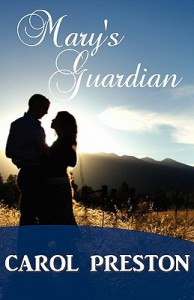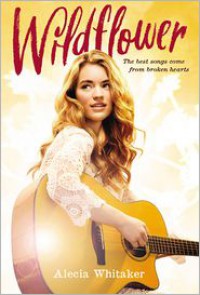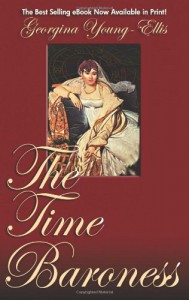My Journey in Writing
My name is Lynne Stringer and I love writing! Of course, that’s not all I love. I also love reading books, especially ones that take me out of the every day and into a new world. It doesn’t have to be a completely imaginary world, either. Anything with fascinating characters and interesting storylines will do. My first young adult novel, The Heir, was accepted for publication by Wombat Books and released on 1 June 2013. It is the first book in the Verindon trilogy. It’s so exciting to have a real copy of my book in my hands.

I enjoy reading historical fiction and this series is even more interesting than most, as it's based, not only on Australia's colonial days, but on Carol Preston's own family history. She's taken a little poetic license to fill in the gaps, but the people were real and the situations they find themselves in have clearly been well researched by the author. The tale of two convicts overcoming their past to make a life in a new country is not an uncommon theme, but it is well done here, providing an entertaining novel steeped in history.

Thoroughly enjoyable Christian drama/romance. I enjoyed the journey they took me on from start to finish. It was interesting to see just how one little thing that happened in the course of two people's journey changed things for them. Andrea's definitely become a favourite writer of mine.
 1
1

Well written and confronting novel based on a true story. Though the Bud be Bruised is not for the faint-hearted, and may be an especially difficult read for those who have experienced sexual abuse. However, it is a deep, thoughtful and ultimately hopeful story.
 1
1

I considered giving this book only two stars. However, it held my interest, so I decided on three. Although the fact that my interest was held probably has more to do with the subject matter than the brilliance of the writing.
It's hard to be impressed by a biography which, if I remember correctly, calls Mandy Patinkin (the man who played Inigo Montoya in The Princess Bride) a comedienne. Most of the facts presented about Robin seemed to be grabbed from whatever interviews others had done and offered few original insights. The book is also sorely in need of a decent edit. It comes across as self-published. For example, the author uses words like 'totally' a lot, which grated on me, and there was regular repetition of information.
All in all, a poor treatment of a worthy subject.

Wonderful book that details (briefly) Spielberg's childhood, before launching into details on his major movies from Duel to War Horse. Has some fantastic images from his films and some great behind-the-scenes details, but mainly focuses on the whys and wherefores of Spielberg as an artist, as seen through his work. Well worth the read.

I haven't read The Shack, and have heard mixed things about it, but what I'd heard made me interested in trying this book to see what Mr Young had to say about creation.
I have to confess that it simply didn't engage me. If not for the fact that I had to read itto review it for someone, I would have stopped reading after the first couple of chapters. There's a lot talking, a lot of witnessing events from the bible (sort of), and I had to prod myself to keep going and not give up.
Most of what happens didn't cover anything that was new to me. I know the bible accounts. I'm familiar with alternative ideas of things related to Eden, to God having breasts, to the Holy Spirit being represented as female, etc. The thing that really got me was Eve being represented as the innocent party in the Fall, with Adam and the Snake conspiring to trick her, to such an extent that he's barred from Eden but she isn't. While I'm far from thinking that Adam was an innocent party in that story, painting him as the bad guy and Eve as the victim doesn't seem to have any justification, except to get her off the hook and put him on it.
Not to mention (on a story level), I always find it frustrating when a protagonist in a novel mistrusts everyone except the person who's clearly deceiving her and going behind others' backs, planting doubt in her mind. It's annoying because it's usually made so obvious I can't understand why the protagonist couldn't have pick up on it. That's the case in this book.
There were some passages that I enjoyed, particularly in the way the characters respond the presence of God, but it wasn't enough to make me feel that reading this book was a worthwhile experience.
 1
1

I found this book incredibly frustrating. While I started out liking Chelsea as a character, she quickly proved to be so easily swayed by a cute boy I found it difficult to think her anything other than flighty. While I understand that temptation can prove too much for anyone if the circumstances are right, she gave in so regularly, and even when her life was in tatters and the temptation was no greater than it had been previously, she still went along with it.
In fact, when she gives in at the end of the book, I couldn't understand why. Everything was ruined and she'd already realised that Dylan wasn't as good as Todd. She also knows she has to finish the costumes she's doing for this summer production, something that she's passionate about and that is necessary for her future career, and still, all Dylan has to do is pressure her a tiny bit and she caves. Then she insists he drive her home while he's drunk.
All these poor decisions didn't endear to to me as a character. I could have bought it more if the temptations were brought in more gradually and if they increased over time, but the way it was, it made it difficult for me to think she was ever dependable at all, which is what it's clear we're meant to think in the beginning.
 1
1

Wildflower is a good story that moves along well and I liked Bird as a character. I was interested in her life and how she handled the fame that she experiences fairly quickly. However, I only gave the book three stars because I found it difficult to remain engaged in the story. Also, there wasn't much of a resolution. Most of the threads raised in Wildflower are left unresolved by the end of it and this left me feeling a little unsatisfied.
 1
1

This book doesn't deviate much from the pattern established in the previous books. It continues the story of Kate, Tori and Colt, now adding Melissa to their group, although Melissa is a bit difficult for Kate to deal with sometimes.
In this book, the four of them decide to participate in a parade to advertise Kate’s barn, and also try to find the identity of a mystery woman riding a beautiful black horse.
The action is predictable and perhaps a bit preachy at times. Even when Kate misbehaves, she quickly repents and does the right thing. It's probably not a bad thing in a novel for this age group, but as with the first book, I felt they were a little bit too nice to be realistic at times. Melissa is the exception, although even her behaviour is now mild compared with what it was. Considering the company she's keeping, it's probably not surprising, and there were some good moments of uncertainty on her part, as she feels left out of what the others are doing, not to mention that Kate sometimes still feels jealous, but these things are usually quickly overcome so the story can be concluded on a positive note.

The first half of this book moved along brilliantly. I enjoyed the world, and I liked Merelin herself. Yatol was particularly intriguing and the story seemed more alive when he was in a scene. Their travels were enjoyable and intriguing. However, the second half of the book dragged a bit, with a lot of travelling and then meeting new people, arguing with them, and fighting with the Ungulion, which happened over and over again. I think if this happened a couple of times fewer than it did, the book would have been a lot tighter and the pace would have stayed steady. Instead it dragged a bit.
Also,(and here's the spoiler-y bit) if the Ungulion where really seeking the Pyelthan, why didn't they search their prisoners for it? Merelin's got it on her several times when they have her captive, and they don't search any of them to see if it's there.
It was still great world to inhabit, though.

The Time Baroness was an interesting book to me because it combined three of my favourite genres - science fiction, historical fiction and romance. I enjoyed reading about Cassandra and her travel back in time to experience life in Jane Austen's England. She isn't expecting to fall in love, but she does, and although the relationship is one Miss Austen herself wouldn't have approved of, there were only a couple of scenes that detailed sexual encounters, so there wasn't too much of it (I prefer fade-to-black).
There was one particular thing about the story that really interested me. While there are many people who fantasize about returning to Austen's England, Cassandra finds it unbelievably dull and restrictive, especially when it comes to class distinctions, correct behaviours and making sure you don't upset anyone. She is far too modern in her ideas to fit in completely, so some of the locals are suspicious of her.
There were a couple of elements in the story that I didn't like. For example, if people in the future have developed the ability to travel in time (especially since it's a recent development in Cassandra's time), are they really going use it to indulge someone in going back to do nothing more than experience Victorian England? This seemed a little bit of a stretch. Also, Cassandra enters into a serious relationship while always knowing she intends to leave when the allotted time for her stay is up. While affairs of the heart will often make us do things we wouldn't otherwise do, since this is in her mind all the time (especially when you consider how many lies she has to tell to keep the truth from being discovered), it gives a false note to the relationship, and made it difficult for me to warm to her character.
However, the journey was still enjoyable and well written, apart from a bit of 'telling' rather than 'showing'. It certainly held my interest and I may well seek out other books in this series.
 1
1

This book is a gripping and detailed account of a terrible period in England's history, a time when the age of consent for sex was only thirteen and girls were being trapped in brothels, lured there with offers of work as domestic servants and sometimes even sold by their poverty-stricken parents, and raped.
Into this den of vice strides controversial newspaperman WT Stead, who, with the aid of the Salvation Army, fights for the age of consent to be raised and for laws to be introduced to protect girls from this fate. But Stead's methods are sometimes questionable, and this gets him into trouble.
While I wouldn't call this book a pleasant read, as the subject it covers is not one that makes for enjoyable reading, it is still riveting and it holds the reader's interest, especially since it's made clear at the start what Stead's behaviour results in.
Recommended.
 1
1

I enjoyed Silver Spurs much more than A Horse for Kate. I felt the first book made Kate seem a little too perfect and this seemed a much better balance of realism as a young Christian girl tries to honour God while struggling with things like selfishness and jealousy. Young girls who love horses should enjoy it immensely.

Resonance was even better than Dissonance. It was, overall, a wonderful, fascinating story, with a take on an 'other world' situation that I haven't seen before. I enjoyed all its characters and their struggles and I think it's ended now. Resonance had a conclusion that had a finality about it, although I think Erica O'Rourke could write another one in this series if she wanted to. However, I was satisfied with this conclusion and its tragedies and triumphs, although there is a slight uncertainty to it, which is what makes me think that more might appear eventually. And while I can live without a third book, I still wouldn't mind knowing what Delancey does next.
The only criticism I have about Resonance is that there were times towards the end of it that there seemed to be unnecessary introspection that caused the pace to drop. There wasn't a huge amount of that, though, so it didn't spoil it for me.
A great book, highly recommended.
 1
1

The Madness Project is set in the land of Cavnal, which bears a striking resemblance to Earth in the early 20th century. The main difference is that there are people who can use supernatural powers (mages) and the government of Cavnal is trying to get rid of them.
This scenario provides a great premise for what proved to be a fascinating and intricate story full of political intrigue, betrayal and a little bit of romance. I enjoyed reading about Tarik and his journey and I loved Hayli as well, not to mention Zagger, who is a favourite of mine. There were also plenty of characters I loved to hate.
I do think it was just a tad long and sometimes the plot was a bit convoluted. Sometimes it was difficult to remember who was fighting with whom and all the details that went with that, especially if I had to leave the book to participate in Real Life for a while. I'd come back and say, 'Okay, he's meeting with who again? And are they enemies or friends?' It would have been worth keeping notes so that I could refresh my memory before I re-entered that world.
However, don't let that stop you from reading it. It was fantastic and I know many readers thrive on intricate plots like that. It was a wonderful world to inhabit and I will be checking out the next book.

I haven't read books one to six in this series, and I think it might have helped if I had, although I was still able to understand where the book was heading story-wise. I enjoyed following Audun's quest, as he performed tasks for the dragon king in exchange for being taught how to turn into a human, so he can win over the family of his human girlfriend, Millie, who can turn into a dragon.
Audun was an endearing dragon, and I was drawn into his story and enjoyed seeing him overcome obstacles so that he could win Millie's hand. However, at that point things became a little muddled. There is much talk about wars between nations during the book, but it seems that the author skipped what seemed to be a major skirmish. Audun is involved in helping a rightful king escape from the clutches of his evil brother, but in the following chapter, he is on his way to see Millie, and refers in his thoughts to a battle between the kingdoms that has already taken place. It's clear he took part in it, and I would have considered it a major part of the story, but it's only mentioned in passing a couple of times. Considering how much this conflict was featured in the book, it was surprising and jarring not to experience this part of the story with Audun.
Not only that, the moment he finds Millie, rather than race into his arms, she accuses him of hiding his ability to change into a human from her and refuses to speak to him for days! Considering how their love is the basis for the quest that is the premise for this book, her casual dismissal of him at this point seemed odd, especially since, in her first read conversation where she actually listens to Audun, she immediately does a back flip and believes him. Why include her disbelief at all if so little was done with it? It seemed pointless and only made Millie look flighty and made it difficult for me to see anything special in their love, which was a let-down after reading a book which was driven by it.
I also found the climatic final fight of the book uninteresting. It didn't really work for me. So the last few chapters were not ones I enjoyed.
But it is a good story with dragons, witches, wizards, ghosts and spells, which children in the primary school age group will probably enjoy.
 1
1






